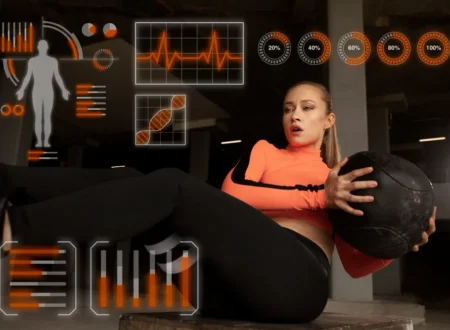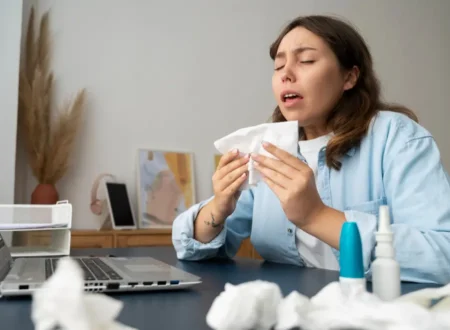How to Control High Blood Pressure:
High blood pressure, or hypertension, is a significant health concern that affects millions of people globally. Known as the “silent killer” due to its lack of symptoms, hypertension can cause severe complications such as heart disease, stroke, and kidney failure if left untreated. Fortunately, managing high blood pressure is achievable through intentional lifestyle changes, a healthy diet, and medical guidance. This article explores practical and proven strategies for how to control high blood pressure and improve your overall well-being.
1. Adopt a Heart-Healthy Diet
One of the most effective methods to combat high blood pressure is by embracing a heart-healthy diet tailored to promote cardiovascular health.
The DASH Diet: A Proven Approach
The Dietary Approaches to Stop Hypertension (DASH) diet has been widely recognized for its effectiveness in reducing high blood pressure. This diet emphasizes:
- Fruits and vegetables: High in potassium, which helps neutralize the effects of sodium in the body.
- Whole grains: These provide fiber, essential for maintaining a healthy weight and cardiovascular system.
- Low-fat dairy: Rich in calcium and low in saturated fat.
- Lean proteins: Sources like fish, chicken, and legumes help maintain overall heart health.
Lower Your Sodium Intake
Excess sodium intake is a leading cause of hypertension. The average adult consumes far more sodium than necessary, primarily from processed foods, canned goods, and fast food. Reducing sodium intake to 1,500 mg per day or less can significantly lower blood pressure. Replace salt with herbs, spices, lemon, or vinegar to enhance the flavor of meals without added sodium.
Incorporate Potassium-Rich Foods
Potassium is a vital nutrient that helps regulate blood pressure by balancing sodium levels in the body. Foods like bananas, oranges, spinach, sweet potatoes, avocados, and beans are excellent sources of potassium. Incorporating these foods into your daily diet can naturally lower blood pressure.

2. Stay Physically Active
Regular physical activity plays a critical role in controlling high blood pressure. Exercise strengthens the heart, improves circulation, and reduces the strain on blood vessels.
The Role of Aerobic Exercise
Aerobic exercises, such as walking, jogging, swimming, or cycling, are particularly effective at lowering blood pressure.
Strength Training for Added Benefits
Incorporating strength training into your routine at least twice a week can complement aerobic activities. Resistance exercises help build muscle and promote a healthy metabolism, which indirectly supports heart health.
Simple Ways to Stay Active Daily
Small lifestyle changes, such as taking the stairs, gardening, or walking during your lunch break, can make a big difference. Staying consistent with movement throughout the day is more important than short bursts of intense activity.

3. Maintain a Healthy Weight
Your weight has a direct impact on blood pressure. Carrying excess weight increases the workload on your heart, leading to higher blood pressure.
Why Weight Loss Matters
Research shows that losing even a small amount of weight—around 5-10% of your total body weight—can significantly reduce blood pressure. The benefits multiply as you continue to shed excess pounds.
How Weight Affects Blood Pressure
Carrying extra pounds puts added strain on the heart, leading to increased pressure on the artery walls. Losing 5-10% of your body weight can lower blood pressure significantly and improve overall heart health.
Tips for Sustainable Weight Loss
- Portion Control: Be mindful of portion sizes to avoid overeating.
- Calorie Awareness: Aim to burn more calories than you consume through a combination of diet and exercise.
- Balanced Meals: Focus on nutrient-dense foods like lean proteins, vegetables, and whole grains.
- Consistency Over Perfection: Gradual, steady weight loss of 1–2 pounds per week is more sustainable than rapid crash diets.

4. Manage Stress Effectively
Chronic stress contributes significantly to high blood pressure by triggering hormones that constrict blood vessels and increase heart rate. Finding ways to manage stress can greatly benefit your blood pressure and overall well-being.
Effective Stress-Reduction Techniques
- Mindfulness and Meditation: These practices involve focusing on the present moment, reducing anxiety, and promoting relaxation.
- Deep Breathing Exercises: Practicing diaphragmatic breathing can quickly calm your nervous system and lower blood pressure.
- Yoga and Tai Chi: These activities combine movement and mindfulness, helping to alleviate stress and improve flexibility.
- Hobbies and Leisure: Engage in activities you enjoy, such as reading, gardening, or painting, to help unwind.
Organize and Prioritize
Stress often stems from feeling overwhelmed. Create to-do lists, delegate tasks when possible, and set aside time for self-care to better manage your daily responsibilities.

5. Monitor Your Blood Pressure Regularly
Consistent monitoring is essential for understanding and managing high blood pressure.
Using a Home Blood Pressure Monitor
Home monitoring allows you to track your progress and notice any significant changes early. Choose a reliable, clinically validated device. Take readings at the same time each day, preferably in a calm state, and record the results to share with your healthcare provider.
- Choose the Right Device: Invest in a clinically validated, automated blood pressure monitor with a cuff that fits snugly on your upper arm.
- When to Measure: Take measurements at the same time each day, preferably in the morning before eating or taking medication, and in the evening before bed. Avoid caffeine, alcohol, exercise, or stress-inducing activities at least 30 minutes before measuring.
- Proper Positioning: Sit upright in a chair with your back supported, feet flat on the ground, and your arm resting at heart level. Take two or three readings a minute apart and record the average.
Schedule Routine Checkups
In addition to home monitoring, regular visits to your doctor are vital. Healthcare professionals can offer personalized advice, adjust medications, and identify any underlying issues contributing to your blood pressure levels.
- Accurate Readings: Professional-grade equipment ensures precise measurements, ruling out any errors from home devices.
- Comprehensive Analysis: Doctors assess your blood pressure in the context of your overall health, considering other factors such as cholesterol levels, blood sugar, and organ function.
- Medication Adjustments: If lifestyle changes alone aren’t sufficient to control your blood pressure, a doctor can prescribe or adjust medications to suit your needs.

6. Limit Alcohol and Caffeine Intake
Both alcohol and caffeine can influence blood pressure levels, particularly when consumed in excess.
Alcohol: Moderation is Key
While small amounts of alcohol may offer cardiovascular benefits, overconsumption has the opposite effect. Limit alcohol intake to one drink per day for women and two for men. If you are prone to high blood pressure, consider avoiding alcohol altogether.
Caffeine Awareness
Caffeine’s effect on blood pressure varies between individuals. For some, it may cause temporary spikes in blood pressure, especially if consumed in large quantities. Monitor your blood pressure after drinking caffeinated beverages to determine your tolerance.
- Temporary Spikes: Research suggests that consuming caffeine can cause a temporary spike in blood pressure, lasting anywhere from 30 to 60 minutes post-consumption. These effects tend to be more significant in individuals who do not regularly consume caffeine.
- Long-Term Impact: Regular caffeine drinkers might build a tolerance, experiencing less of a blood pressure increase over time. However, for some, daily caffeine consumption in high doses can contribute to sustained hypertension.
- Monitor Your Response: Test your sensitivity by checking your blood pressure before and after consuming caffeinated beverages. If you notice significant spikes, it may be best to limit intake.

7. Quit Smoking
Smoking poses a serious risk to your cardiovascular system and is directly linked to higher blood pressure. Each cigarette you smoke causes a temporary increase in blood pressure and damages arterial walls.
Immediate Benefits of Quitting
The benefits of quitting smoking are nearly immediate. Within 20 minutes of your last cigarette, blood pressure begins to normalize. Over time, quitting improves heart health, circulation, and lung function, significantly reducing your risk of hypertension-related complications.
Strategies to Quit Smoking
- Nicotine Replacement Therapy: Products such as patches, gum, and lozenges can help ease withdrawal symptoms.
- Support Groups: Joining a group provides encouragement and accountability.
- Professional Help: Counseling or therapy can address underlying triggers for smoking and offer coping mechanisms.

Conclusion: Take Charge of Your Blood Pressure
Controlling high blood pressure requires a combination of dedication, knowledge, and proactive measures. By adopting a heart-healthy diet, staying physically active, managing stress, and making other lifestyle adjustments, you can significantly lower your blood pressure and enhance your overall quality of life. Small, consistent efforts lead to lasting results when managing how to control high blood pressure. Partner with your healthcare provider to create a customized plan that works best for you. Prioritize your heart health today for a healthier, brighter future.
Read More: Discover amazing information and unique finds on FuseBay! Don’t miss out—must visit our website for exclusive articles and top-notch blogs tailored just for you!







